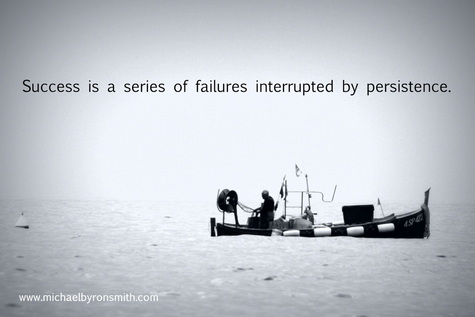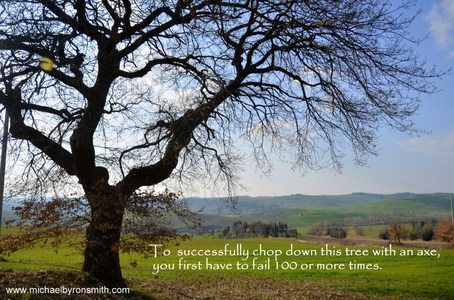 Photo: A fisherman off the coast of Italy, M.Smith
Photo: A fisherman off the coast of Italy, M.Smith ― Winston S. Churchill
Teaching your children is something you do even if you aren’t proactive in doing so. They learn from watching you, whether that would be how to hold a spoon, or how to treat others. As a parent, you are being watched more than you are listened to.
If you have a positive attitude and lots of determination, your children will be likely to follow your example. When they see that success begins and ends with effort--by watching you, it may be the most important lesson you can impart. The trouble with success is it takes so much work, because real success follows failure or overcoming obstacles--otherwise their is nothing to conquer.
Going through failure is not pleasant. It is so much easier to avoid work, avoid controversy, and avoid stress. It's much simpler to not expose yourself nor risk being vulnerable to criticism. But in my opinion, the most damaging criticism is to be accused of not trying. It's easy to not try and it's easy to criticize others. I regret that many times I have been guilty myself of not trying enough!
 A tree in a Tuscany field, M. Smith
A tree in a Tuscany field, M. Smith Failure is in the formula for my definition of success.
Success is a series of failures interrupted by persistence.
With persistence, failure is just a step towards success. If you want to chop down a tree and your first whack doesn’t fell the tree, you have temporarily failed. You may fail 100 or more times before you find success and the tree comes down. Kids can understand that. Tell them life is like chopping down a tree. The bigger the tree, the more failures may be required before success.
There should be word for a person that never tries anything. A really nasty word that allows failure it’s due as a milestone towards success. I think ‘slacker’ is a descriptive word that is often used. ‘I failed’ has a tone of effort. 'I am a slacker' tells me there is no effort. Slacker is a noun that has no verb form. After all, a verb usually denotes action. I run. I sing. I work. I play. Those are acts. “I slack” may sound like an act, but you don’t have to do anything to do it.
Even winning is not always success. If you are a high school track star and win a foot race against two fifth graders, three grandmothers, and one sumo wrestler, you may have won, but you can’t really call that a success. What have you achieved? To improve, you must be challenged by someone of equal or higher potential, or by a task that requires true determination and struggle.
Giving trophies to children for participation is a false representation of success. We seem to do this too often and it sends the wrong message. Being a participant far exceeds being a slacker, but making passive participation appear to be all it takes for success misleads young people.
As a young officer in the military, I once approached my commander about awards he was presenting to members of our unit who participated in an exercise in which I was involved. I knew some of these awards were not earned while others were well deserved. I asked him about this, explaining my view that those that didn’t earn the awards wouldn’t appreciate them, and those that did earn the awards would see they were given indiscriminately and their value would be lost.
To no one’s surprise, he threw me out of his office--shouting at me not to tell him how to run his unit! He had reasons for his choices but they were more political than sincere. He was embarrassed by my challenge and I understood that. But afterwards, he was very supportive and even promoted me soon after this incident. I may have been naive, but he knew my principles were correct. False praise or recognition is not productive.
Parents must be careful to walk the line between true support and false praise. Children will either be misled by your false praise, or will not know when true praise is sincere. Give them challenges and praise worthy efforts on their part. Watch them beam when they succeed after they have had doubts.
Be a good teacher and a great example. It's easier said than done and you may fail sometimes, but be persistent, because 'success is a series of failures interrupted by persistence'.





